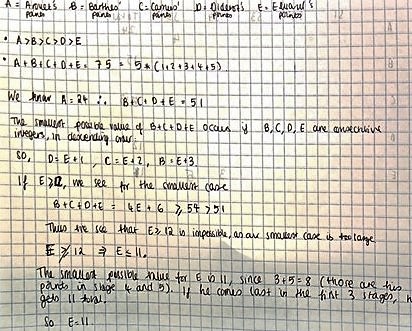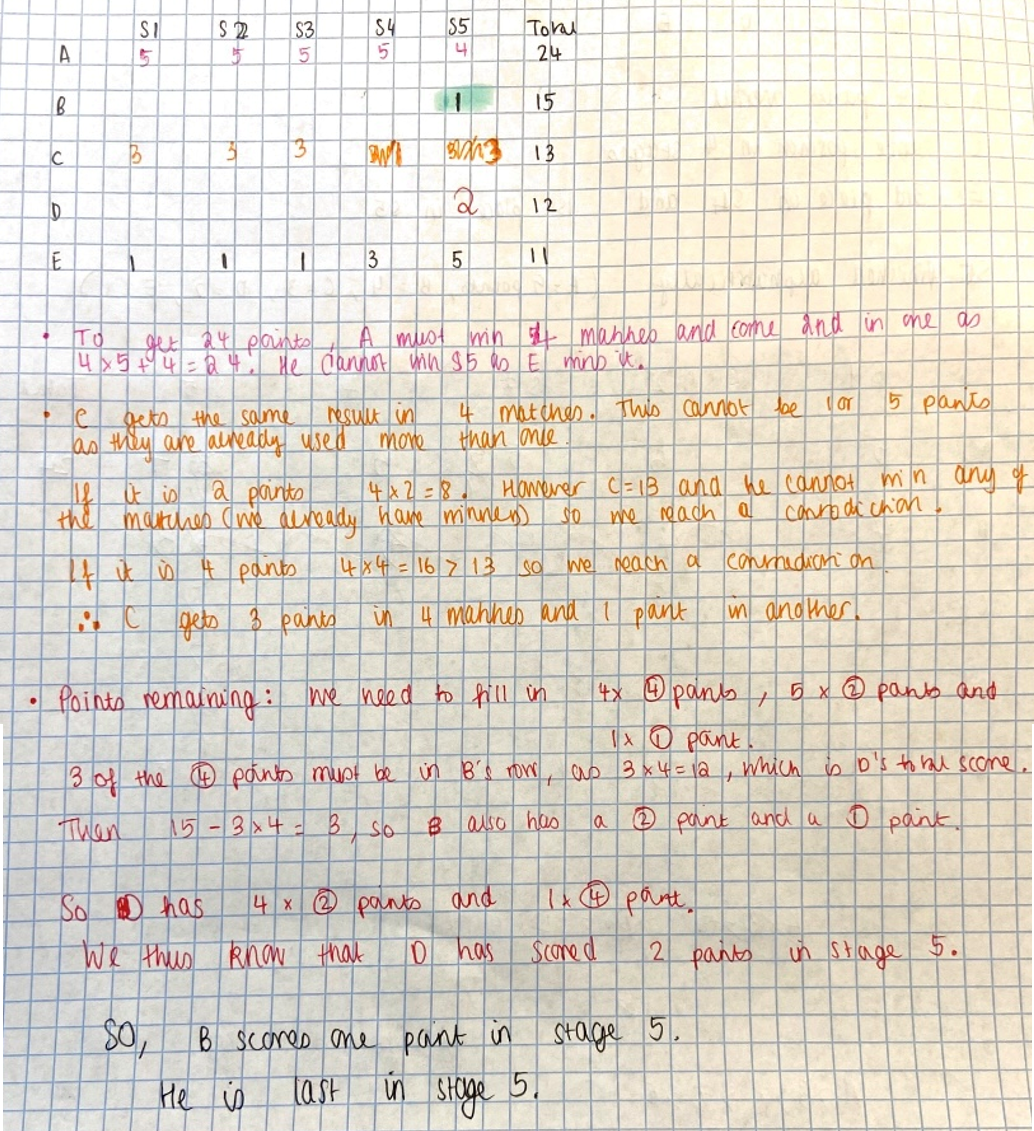Or search by topic
Number and algebra
Geometry and measure
Probability and statistics
Working mathematically
Advanced mathematics
For younger learners
The Tour De Clochemerle



- Problem
- Getting Started
- Student Solutions
- Teachers' Resources
Nikita from Jersey College for Girls in Jersey, Yihuan from Pate's Grammar School, Maria from NSG, Vivek from Wilson's School and Will from Dover Girls Grammar School all in the UK all explained why Eluard must have got 11 points. Maria made some assumptions from the language in the question:
Eulard performed dismally in the first 3 stages, suggesting he got last place. Then he got 3rd place in the penultimate stage and 1st in the final stage: 1+1+1+3+5=11 points overall.
Nikita, Yihuan, Vivek and Will used the total number of points to show that Eluard must have got 11 points. This is Nikita's work:

Vivek and Nikita worked out how many points Barthes, Camus, Diderot got using the same idea. Vivek wrote:
The other cyclists in place 2, 3 and 4 have to get a different number of points that are:
- above 11
- below 24
- add up to the remaining 40 points
The only set of integers that can satisfy these statements are 12, 13 and 15.
Nikita showed how to work what happened in the last race (click on the image to see a larger version):
Will and Yihuan used the information about Camus's score to work out how the races went. This is Will's work:
You may also like
Curvy Equation
This problem asks you to use your curve sketching knowledge to find all the solutions to an equation.
Digital Equation
Can you find a three digit number which is equal to the sum of the hundreds digit, the square of the tens digit and the cube of the units digit?
Euler's Totient Function
How many numbers are there less than $n$ which have no common factors with $n$?


